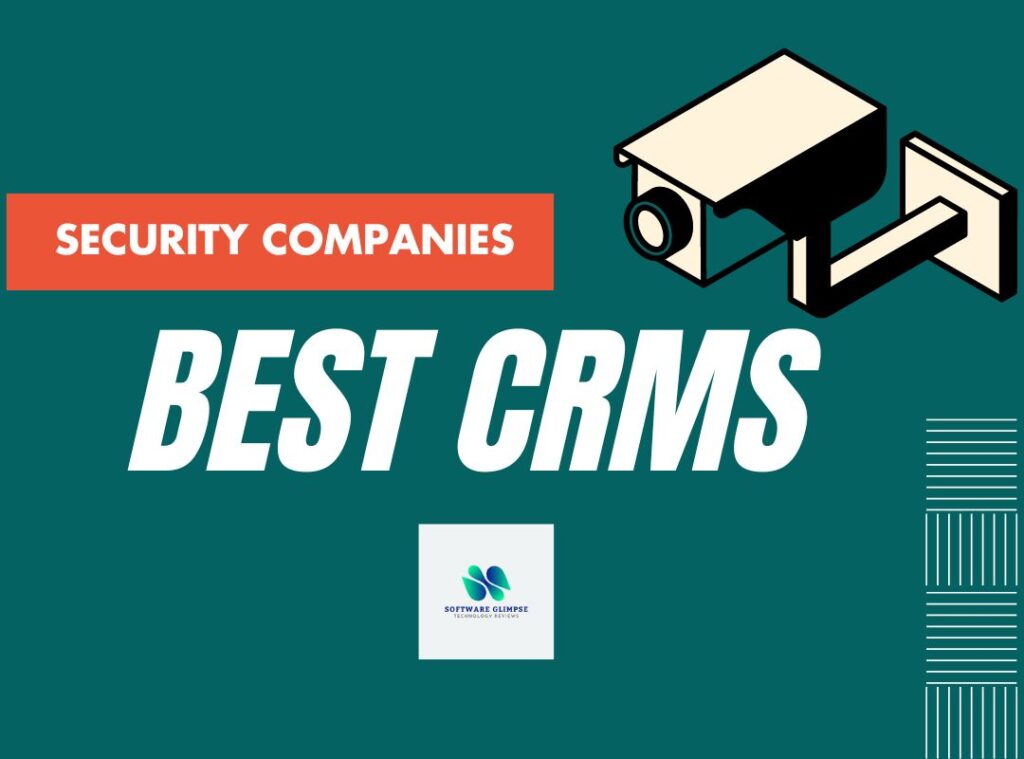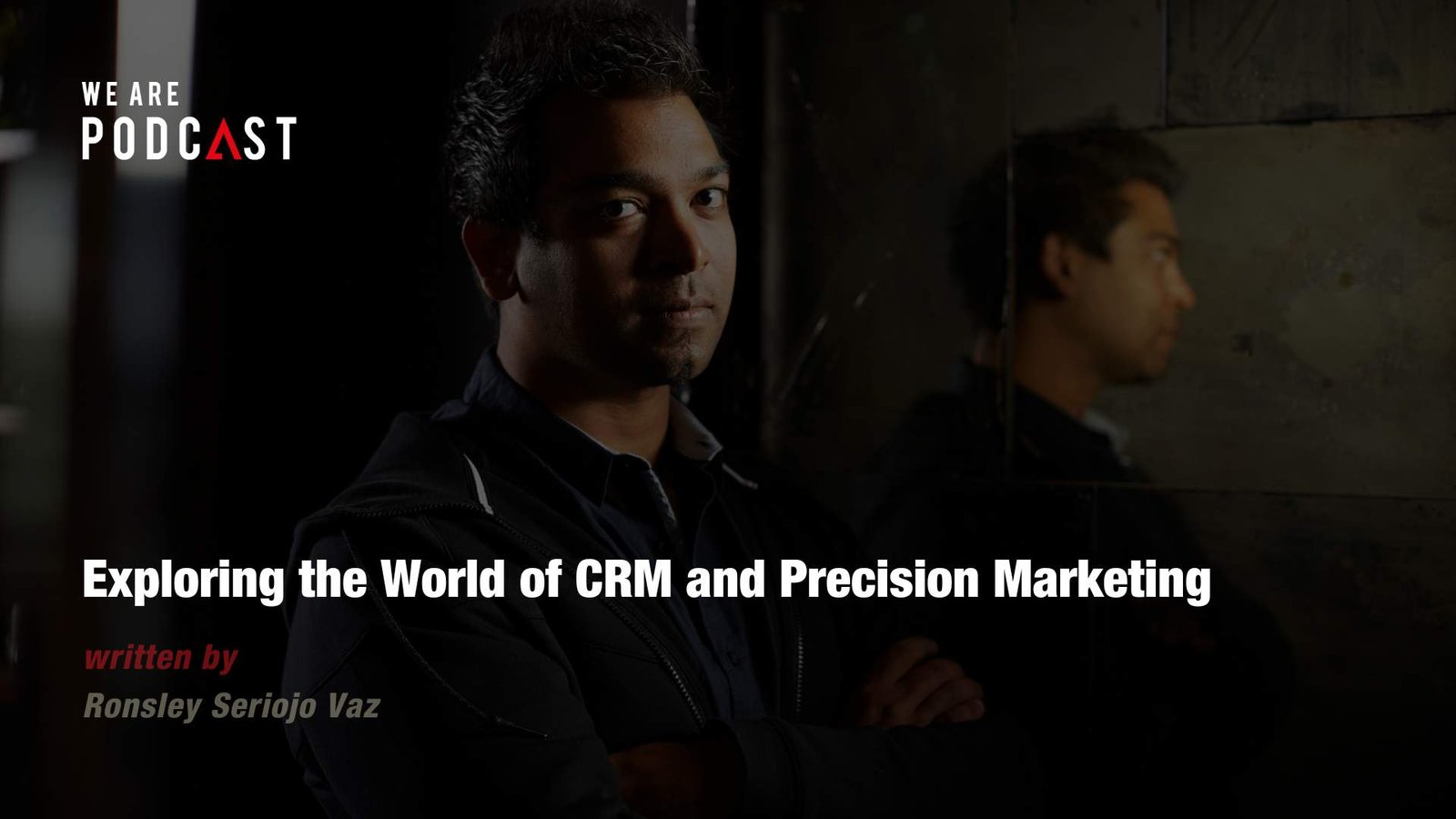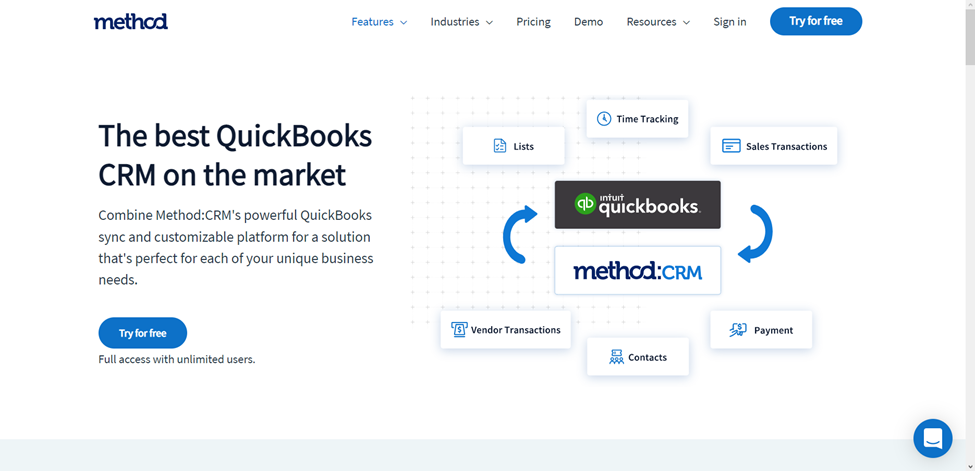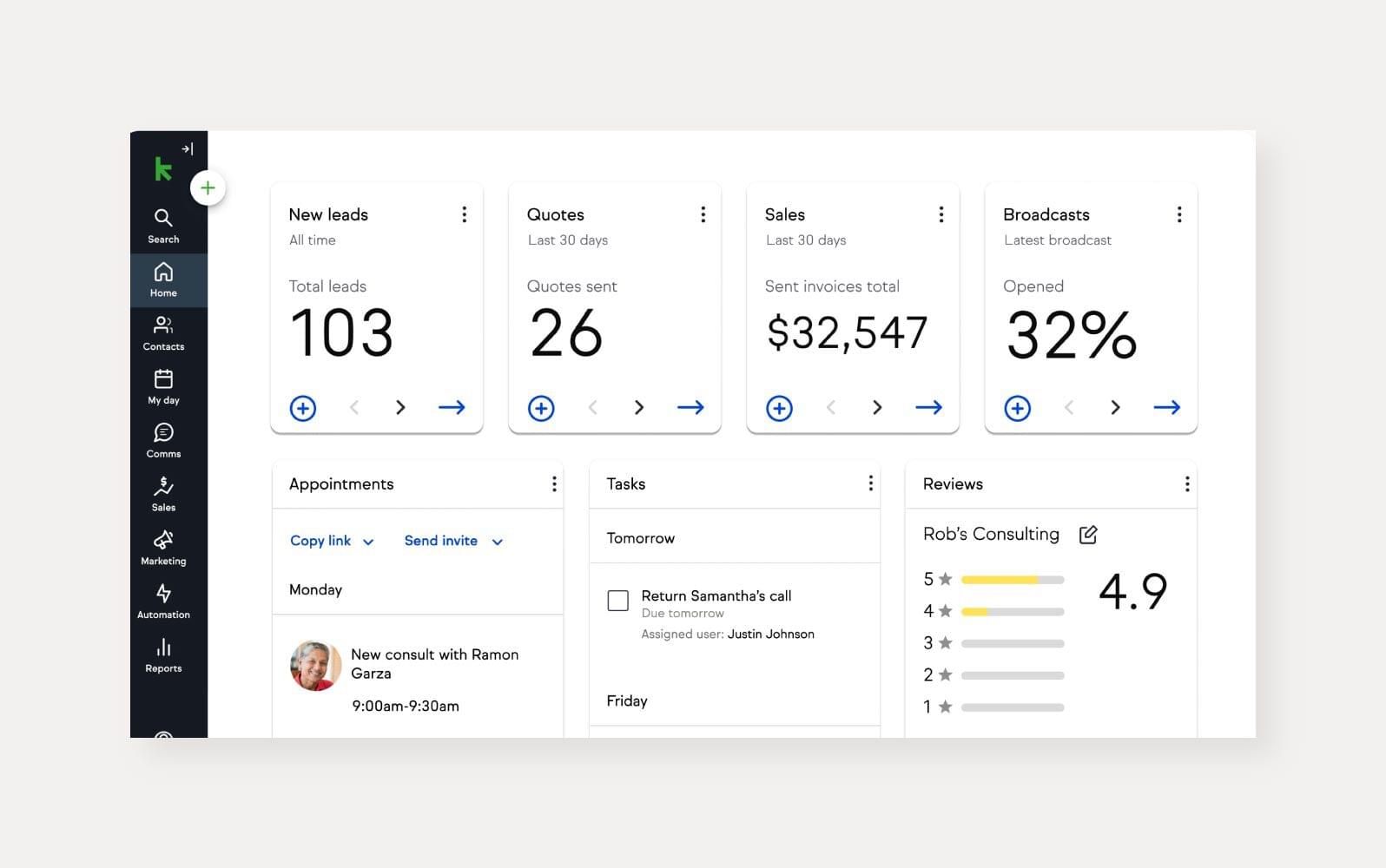Fortifying Your Fortress: A Deep Dive into CRM Security for Small Businesses

The Imperative of CRM Security for Small Businesses
In the bustling digital landscape, where data is the new gold, safeguarding customer information isn’t just best practice; it’s a fundamental necessity. For small businesses, the stakes are particularly high. A data breach can be catastrophic, potentially leading to financial ruin, reputational damage, and loss of customer trust. This is where Customer Relationship Management (CRM) systems come into play, acting as central hubs for sensitive customer data. However, the very nature of these systems, designed to store and manage crucial information, makes them prime targets for cyberattacks. Therefore, understanding and implementing robust CRM security measures is paramount for small businesses aiming to thrive in today’s competitive environment.
This article delves deep into the world of CRM security, specifically tailored for small businesses. We’ll explore the various threats, the importance of proactive security measures, and the practical steps you can take to protect your valuable customer data. We’ll discuss the specific challenges faced by small businesses, the best practices for implementing secure CRM systems, and the technologies and strategies that can help you fortify your digital fortress. By the end, you’ll have a comprehensive understanding of how to secure your CRM and, by extension, your business.
Understanding the Threats: Why CRM Security Matters
Before diving into solutions, it’s crucial to understand the threats that small businesses face. The digital world is fraught with dangers, and CRM systems, with their treasure troves of customer data, are particularly vulnerable. Here are some of the most common threats:
- Data Breaches: These can occur through various means, including hacking, malware, phishing attacks, and insider threats. A data breach can expose sensitive customer information like names, addresses, credit card details, and purchase history.
- Ransomware Attacks: Cybercriminals can encrypt your CRM data and demand a ransom for its release. This can cripple your business operations and lead to significant financial losses.
- Phishing Attacks: These attacks involve tricking employees into revealing sensitive information, such as login credentials. Phishing can lead to unauthorized access to your CRM system.
- Insider Threats: These threats come from within your organization, whether intentional or unintentional. A disgruntled employee or a negligent user can inadvertently expose your data.
- Malware: Malicious software can infect your CRM system and steal data or disrupt operations.
- Compliance Violations: Failing to comply with data privacy regulations, such as GDPR or CCPA, can result in hefty fines and legal repercussions.
The consequences of these threats can be severe. They can include:
- Financial Loss: Costs associated with data recovery, legal fees, regulatory fines, and damage control.
- Reputational Damage: Loss of customer trust and negative publicity.
- Legal Issues: Lawsuits and regulatory penalties.
- Business Disruption: Inability to access or use your CRM data, leading to operational downtime.
- Customer Attrition: Customers may choose to take their business elsewhere if they feel their data isn’t safe.
Therefore, a proactive and comprehensive approach to CRM security is not just a good idea; it’s a business imperative.
Best Practices for CRM Security: A Proactive Approach
Implementing robust security measures is crucial to protecting your CRM system and your business. Here are some of the best practices you can adopt:
1. Choose a Secure CRM Provider
The foundation of your CRM security lies in the provider you choose. Look for a provider with a strong track record of security and compliance. Consider the following:
- Security Certifications: Does the provider have certifications like ISO 27001 or SOC 2? These certifications indicate that the provider has implemented robust security controls.
- Data Encryption: Does the provider encrypt data both in transit and at rest? Encryption is a critical layer of protection.
- Regular Security Audits: Does the provider conduct regular security audits and penetration testing?
- Data Centers: Where are the provider’s data centers located? Are they secure and compliant with relevant regulations?
- Incident Response Plan: Does the provider have a documented incident response plan in place?
Research and compare different CRM providers, focusing on their security features and capabilities. Don’t hesitate to ask detailed questions about their security practices.
2. Implement Strong Access Controls
Controlling who has access to your CRM data is essential. Implement the following access control measures:
- Role-Based Access Control (RBAC): Assign different roles to users based on their job responsibilities. Grant access only to the data and features that are necessary for their roles.
- Multi-Factor Authentication (MFA): Enable MFA for all user accounts. This adds an extra layer of security by requiring users to verify their identity using a second factor, such as a code from a mobile app or a security key.
- Strong Passwords: Enforce strong password policies, including minimum length, complexity requirements, and regular password changes.
- Regular User Account Reviews: Regularly review user accounts and access privileges to ensure that they are still appropriate. Remove access for former employees or users who no longer require it.
These measures help prevent unauthorized access to your CRM data and limit the potential damage from compromised accounts.
3. Data Encryption: Protecting Your Data at Rest and in Transit
Encryption is a cornerstone of CRM security. It protects your data from unauthorized access, even if your system is compromised. Here’s how to implement data encryption effectively:
- Encryption at Rest: Ensure that your CRM provider encrypts data stored on its servers. This protects data from unauthorized access if the servers are compromised.
- Encryption in Transit: Use secure protocols like HTTPS to encrypt data transmitted between users and the CRM system. This protects data from interception during transmission.
- Key Management: Understand how your CRM provider manages encryption keys. Ensure that keys are securely stored and managed.
Encryption is a critical defense against data breaches and unauthorized access.
4. Regular Data Backups and Disaster Recovery
Data backups are essential for disaster recovery. In the event of a data breach, system failure, or ransomware attack, you’ll need to restore your data from a backup. Implement the following backup and recovery measures:
- Regular Backups: Back up your CRM data regularly, ideally daily or even more frequently.
- Offsite Backups: Store your backups offsite to protect them from physical damage or disasters.
- Backup Testing: Regularly test your backups to ensure that they can be restored successfully.
- Disaster Recovery Plan: Develop a disaster recovery plan that outlines the steps to take in the event of a data breach or system failure.
A robust backup and recovery plan can minimize downtime and data loss in the event of a security incident.
5. Security Awareness Training for Employees
Your employees are your first line of defense against cyber threats. Provide regular security awareness training to educate them about the risks and how to protect themselves and your data. Cover the following topics:
- Phishing Awareness: Teach employees how to identify and avoid phishing attacks.
- Password Security: Emphasize the importance of strong passwords and password hygiene.
- Social Engineering: Educate employees about social engineering tactics and how to recognize them.
- Data Privacy: Explain your company’s data privacy policies and procedures.
- Reporting Security Incidents: Provide clear instructions on how to report security incidents.
Regular training can significantly reduce the risk of human error and improve your overall security posture.
6. Regular Security Audits and Penetration Testing
Regular security audits and penetration testing can help you identify vulnerabilities in your CRM system. Here’s how to implement these measures:
- Security Audits: Conduct regular security audits to assess your security controls and identify areas for improvement.
- Penetration Testing: Hire ethical hackers to simulate real-world attacks and identify vulnerabilities.
- Vulnerability Scanning: Use vulnerability scanning tools to identify known vulnerabilities in your systems.
- Patch Management: Regularly apply security patches to your CRM software and other systems to address known vulnerabilities.
These measures help you proactively identify and address security weaknesses before they can be exploited by attackers.
7. Monitor and Log Activities
Monitoring and logging activities in your CRM system is crucial for detecting and responding to security incidents. Implement the following measures:
- Activity Logging: Enable detailed activity logging to track user actions, such as logins, data modifications, and downloads.
- Security Information and Event Management (SIEM): Consider using a SIEM system to collect and analyze security logs from various sources.
- Alerting: Configure alerts to notify you of suspicious activity, such as multiple failed login attempts or unusual data access patterns.
Monitoring and logging can help you detect and respond to security incidents quickly, minimizing the potential damage.
8. Data Privacy Compliance
Ensure that your CRM system complies with relevant data privacy regulations, such as GDPR and CCPA. This includes:
- Data Minimization: Collect only the data that is necessary for your business operations.
- Data Retention: Establish data retention policies and delete data when it is no longer needed.
- Data Subject Rights: Implement procedures to handle data subject requests, such as requests for access, correction, and deletion.
- Privacy Policies: Develop clear and concise privacy policies that inform your customers about how you collect, use, and protect their data.
Compliance with data privacy regulations is not only a legal requirement but also builds customer trust.
9. Incident Response Plan: Preparing for the Worst
Even with the best security measures in place, you should prepare for the possibility of a security incident. Develop an incident response plan that outlines the steps to take in the event of a data breach or other security incident. Your plan should include:
- Detection: How you will detect a security incident.
- Containment: How you will contain the incident to prevent further damage.
- Eradication: How you will remove the threat.
- Recovery: How you will restore your systems and data.
- Post-Incident Analysis: How you will analyze the incident to prevent future incidents.
A well-defined incident response plan can help you minimize the damage and recover quickly from a security incident.
Specific Challenges and Solutions for Small Businesses
Small businesses face unique challenges when it comes to CRM security. They often have limited resources, less technical expertise, and a smaller IT staff. Here are some specific challenges and solutions:
1. Limited Budget
Small businesses often have limited budgets for security. Here are some cost-effective solutions:
- Leverage Cloud-Based CRM: Cloud-based CRM providers often have built-in security features and offer cost-effective solutions.
- Prioritize Security Measures: Focus on implementing the most critical security measures, such as strong access controls, data encryption, and regular backups.
- Use Free or Low-Cost Security Tools: Utilize free or low-cost security tools, such as firewalls, antivirus software, and vulnerability scanners.
- Training and Awareness: Invest in security awareness training for your employees.
2. Lack of Technical Expertise
Small businesses may lack the in-house technical expertise to implement and manage complex security measures. Here are some solutions:
- Choose a User-Friendly CRM: Choose a CRM system that is easy to use and manage.
- Outsource Security Tasks: Consider outsourcing security tasks, such as penetration testing or security audits, to a third-party provider.
- Seek Guidance from Experts: Consult with security experts or IT consultants to get advice and guidance.
- Training and Education: Invest in training and education for your employees to improve their technical skills.
3. Limited IT Staff
Small businesses often have a small IT staff, which can be stretched thin. Here are some solutions:
- Automate Security Tasks: Automate security tasks, such as backups and patch management, to reduce the workload on your IT staff.
- Use Managed Security Services: Consider using managed security services, such as managed detection and response (MDR), to offload security tasks.
- Prioritize Tasks: Prioritize security tasks based on their importance and impact.
- Leverage Cloud-Based Solutions: Cloud-based solutions often require less maintenance and management.
4. Complexity of Regulations
Data privacy regulations, such as GDPR and CCPA, can be complex. Here are some solutions:
- Seek Legal Advice: Consult with legal counsel to ensure that you comply with all relevant regulations.
- Use Data Privacy Tools: Utilize data privacy tools to help you manage and comply with data privacy regulations.
- Develop Data Privacy Policies: Develop clear and concise data privacy policies that inform your customers about how you collect, use, and protect their data.
- Stay Informed: Stay informed about changes to data privacy regulations.
Technologies and Strategies to Enhance CRM Security
In addition to the best practices mentioned above, several technologies and strategies can further enhance your CRM security:
1. Security Information and Event Management (SIEM) Systems
SIEM systems collect and analyze security logs from various sources, providing real-time visibility into security events. They can help you detect and respond to security incidents quickly. Key features include:
- Log Aggregation: Collect logs from various sources, such as servers, network devices, and applications.
- Security Analytics: Analyze logs to identify suspicious activity and potential threats.
- Alerting: Generate alerts when suspicious activity is detected.
- Reporting: Generate reports on security events and incidents.
Implementing a SIEM system can significantly improve your ability to detect and respond to security threats.
2. Endpoint Detection and Response (EDR)
EDR solutions monitor endpoints (e.g., computers, laptops) for malicious activity. They provide real-time threat detection and response capabilities. Key features include:
- Real-time Monitoring: Monitor endpoints for suspicious activity.
- Threat Detection: Detect known and unknown threats.
- Incident Response: Provide tools to investigate and respond to security incidents.
- Threat Hunting: Proactively search for threats on endpoints.
EDR solutions can help you protect your endpoints from malware and other threats.
3. Web Application Firewalls (WAFs)
WAFs protect web applications from attacks, such as cross-site scripting (XSS) and SQL injection. They filter malicious traffic and prevent attackers from exploiting vulnerabilities. Key features include:
- Traffic Filtering: Filter malicious traffic.
- Attack Detection: Detect and block attacks.
- Vulnerability Protection: Protect against known vulnerabilities.
- Compliance: Help you comply with security standards.
WAFs are essential for protecting web-based CRM systems.
4. Data Loss Prevention (DLP)
DLP solutions prevent sensitive data from leaving your organization. They monitor data in transit and at rest and can block unauthorized data transfers. Key features include:
- Data Monitoring: Monitor data in transit and at rest.
- Data Classification: Classify data based on its sensitivity.
- Data Blocking: Block unauthorized data transfers.
- Compliance: Help you comply with data privacy regulations.
DLP solutions can help you prevent data breaches and protect sensitive customer information.
5. Regular Penetration Testing and Vulnerability Assessments
These proactive measures help you identify and address security vulnerabilities before attackers can exploit them. They involve simulating real-world attacks to assess your security posture. Key benefits include:
- Vulnerability Identification: Identify vulnerabilities in your systems and applications.
- Security Improvement: Improve your security posture by addressing vulnerabilities.
- Compliance: Help you comply with security standards and regulations.
- Risk Mitigation: Reduce the risk of a data breach.
Regular penetration testing and vulnerability assessments are crucial for maintaining a strong security posture.
6. Security Audits
Security audits involve a comprehensive review of your security controls to assess their effectiveness. They can help you identify areas for improvement and ensure that you comply with security standards and regulations. Key benefits include:
- Compliance: Ensure compliance with security standards and regulations.
- Security Improvement: Identify areas for improvement in your security controls.
- Risk Assessment: Assess the risks to your data and systems.
- Best Practices: Implement industry best practices for security.
Regular security audits are essential for maintaining a strong security posture and ensuring compliance.
The Human Factor: Empowering Your Team
While technology plays a vital role in CRM security, the human factor is equally important. Your employees are your first line of defense against cyber threats. Here’s how to empower your team:
1. Security Awareness Training: Ongoing Education
Regular security awareness training is crucial for educating your employees about the risks and how to protect themselves and your data. Training should cover a variety of topics, including:
- Phishing Awareness: How to identify and avoid phishing attacks.
- Password Security: The importance of strong passwords and password hygiene.
- Social Engineering: How to recognize and avoid social engineering tactics.
- Data Privacy: Your company’s data privacy policies and procedures.
- Reporting Security Incidents: How to report security incidents.
Ongoing training is essential to keep your employees informed about the latest threats and best practices.
2. Fostering a Security-Conscious Culture
Create a culture of security within your organization. Encourage employees to be vigilant and report any suspicious activity. Key elements include:
- Open Communication: Encourage open communication about security concerns.
- Reporting Mechanisms: Provide clear reporting mechanisms for security incidents.
- Positive Reinforcement: Recognize and reward employees who demonstrate good security practices.
- Leadership Support: Demonstrate leadership support for security initiatives.
A security-conscious culture can significantly reduce the risk of human error and improve your overall security posture.
3. Incident Response Drills
Conduct regular incident response drills to prepare your team for security incidents. These drills should simulate real-world attacks and test your incident response plan. Key benefits include:
- Preparedness: Prepare your team for security incidents.
- Plan Validation: Validate your incident response plan.
- Process Improvement: Identify areas for improvement in your incident response process.
- Team Training: Train your team on how to respond to security incidents.
Incident response drills are essential for ensuring that your team is prepared to respond effectively to security incidents.
Conclusion: Securing Your CRM for a Secure Future
CRM security is not a one-time effort; it’s an ongoing process that requires constant vigilance and adaptation. By understanding the threats, implementing best practices, leveraging the right technologies, and empowering your team, you can significantly reduce the risk of a data breach and protect your valuable customer data. Remember that securing your CRM is not just about protecting your data; it’s about protecting your business, your reputation, and your customers’ trust. Prioritize CRM security, and you’ll be well-positioned to thrive in the digital age.
In summary, here are the key takeaways:
- Choose a Secure CRM Provider: Select a provider with robust security features and certifications.
- Implement Strong Access Controls: Use role-based access control, multi-factor authentication, and strong passwords.
- Encrypt Data: Encrypt data both in transit and at rest.
- Back Up Data Regularly: Implement regular backups and a disaster recovery plan.
- Train Employees: Provide regular security awareness training.
- Conduct Regular Audits and Testing: Conduct regular security audits and penetration testing.
- Monitor and Log Activities: Monitor and log activities in your CRM system.
- Comply with Data Privacy Regulations: Comply with relevant data privacy regulations.
- Develop an Incident Response Plan: Develop a plan to respond to security incidents.
By following these guidelines, small businesses can build a strong security foundation for their CRM systems, protecting their data, their customers, and their future. The journey to robust CRM security is continuous, but the rewards – a secure business, satisfied customers, and lasting success – are well worth the effort.




